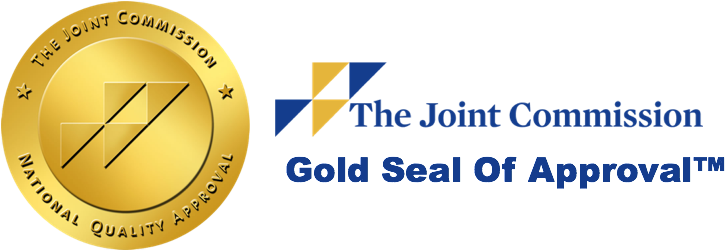People who struggle with untreated mental health issues often use substances to cope with their distress. Unfortunately, poor mental health and substance abuse can create a vicious neurobiological circle, as the substances people use to self-medicate can worsen their mental health problems.
What Is Trauma?
Trauma is a term that is used to describe a variety of different experiences. It can refer to a physical injury, such as a car accident or a fall. It can also refer to an emotional event like witnessing a loved one being injured or experiencing a natural disaster. In some cases, trauma can even refer to a combination of both physical and emotional injuries.
Regardless of the cause, trauma can affect an individual’s mental and physical health. It is not uncommon for individuals who have experienced trauma to develop symptoms of depression, anxiety, or post-traumatic stress disorder. If a person has been affected by trauma, it is essential to seek professional help.
Signs of Unresolved Trauma
Unresolved trauma is common and can have a significant impact on mental health. Individuals with trauma exhibit erratic patterns of behavior in response to stimuli. Signs of unresolved trauma include:
- Difficulty sleeping or chronic nightmares. Trauma can be a distressing and painful experience with lasting effects. Trouble sleeping and nightmares are two signs that trauma may be unresolved. Sleep issues may manifest as insomnia or hypersomnia, and nightmares may involve reliving the trauma or maybe about other themes such as being chased or attacked.
- Difficulty concentrating or completing tasks. This can manifest in several ways, such as difficulty paying attention, staying focused on a job, or having trouble finishing tasks that are started. For some people, this may only be evident in certain situations, such as when they are around people who remind them of their trauma or when they are required to do something that triggers their trauma. For others, the difficulty may be more constant.
- Avoid activities or people that remind them of their trauma. Traumatic events can have a lasting impact on people’s lives. For some, the memories of what happened can be so vivid and painful that they avoid anything that might remind them of the trauma. This may include people involved in the event, places where it took place, or even activities that were going on at the time. For others, the avoidance may be more subtle. They may unconsciously steer clear of triggers, even if they are unaware. This can be a sign that they are still struggling to come to terms with what happened and have not been able to resolve the trauma.
- Feeling jumpy or on edge. One sign that someone may be experiencing unresolved trauma is feeling jumpy or on edge. This feeling can be accompanied by a sense of hypervigilance or feeling like one needs to be constantly on guard. Other signs may include feeling restless. Someone experiencing unresolved trauma may also startle easily or become easily irritated.
- Easily angered or irritated. When an individual experiences a traumatic event, it can affect their emotional and mental state. For some people, the experience is so overwhelming that they cannot process it and move on. As a result, they may find themselves feeling angry and irritable much of the time. This can interfere with their ability to function in everyday life and may even lead to depression or anxiety.
- Feeling hopeless or despairing. If a person has experienced a traumatic event, seeking professional help to process it and learn healthy coping skills is essential. Without proper support, it is common for people who have experienced trauma to feel isolated and alone. They may struggle to trust others and feel safe in the world. As a result, they may turn to substance abuse or other unhealthy coping mechanisms to numb their pain.
The Relationship Between Trauma and Addiction
Trauma can lead to a cycle of self-destructive behaviors, including substance abuse. When people experience trauma, they may feel helpless and alone. They may think nobody else could understand what they are going through. As a result, they may turn to substances to numb their pain or escape reality.
Substance abuse can cause changes in the brain that make it difficult to cope with mental health problems. For example, chronic alcohol abuse can change how the brain processes information, making it more difficult to remember things and make decisions. Substance abuse can also cause changes in brain chemistry, which can worsen mood disorders such as depression and anxiety.
Unfortunately, substance abuse only makes the problems associated with trauma worse. It can lead to financial issues, job loss, and relationship difficulties. It can also lead to physical and mental health problems, and in some cases it can even lead to death. If someone is struggling with trauma, getting help is essential. Many resources are available to help people heal from trauma and break the cycle of self-destructive behaviors. Please do not wait until it is too late. Reach out for help today.
Seek Professional Help at the Phoenix
At the Phoenix Recovery Center, we understand that trauma is a condition that results from exposure to a stressful or difficult event. Trauma symptoms include flashbacks, nightmares, anxiety, depression, and difficulty sleeping. Trauma can also lead to physical symptoms such as headaches, stomachaches, and aches and pains. People who have experienced trauma may also feel detached from their emotions or numbed by them. They may feel angry, irritable, or experience changes in their mood or behavior. Trauma can impact every aspect of a person’s life and can be difficult to cope with. Often, symptoms of unaddressed trauma are so pervasive that they lead individuals to use maladaptive coping mechanisms like substance abuse to manage the discomfort. However, there are treatments available that can help people manage their symptoms and live healthy, productive lives.
For more information on effective trauma and addiction treatment, call us today at (801) 438-3185.







